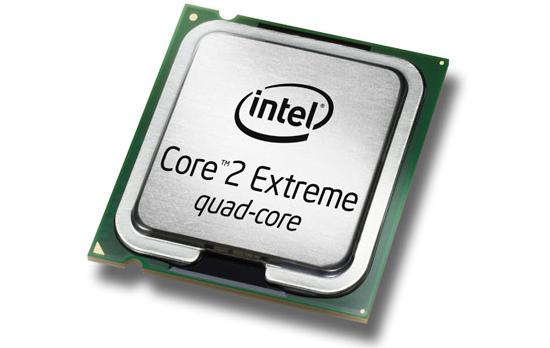Overclocking Intel's New 45nm QX9650: The Rules Have Changed
by Kris Boughton on December 19, 2007 2:00 AM EST- Posted in
- CPUs
Final Thoughts
Although we cannot possibly go over everything there is to know about overclocking, we have definitely covered a lot of ground in a relatively short amount of time. We've looked at the QX9650's real power consumption figures, noting that the values published by Intel and AMD are not meant to exactly represent typical high-load scenarios. Studying just how the processor responds to more voltage shows us why we seem to reach a rather abrupt stop on the way up when overclocking.
We've also learned how rather than pushing a CPU to the ragged edge, sometimes it is better to find that point where performance and efficiency can co-exist in a delicate balance. A good overclock is not always about maximum speed. Instead, we would like to advocate what we call the "intelligent overclock" - find that point where going higher just doesn't make any sense…then simply stop and tune from there. We have provided many of the tools for doing so in this article; now it's up to you to make it happen.

With respect to the throttling issues we discovered during testing, we will not rest in our search for answers. It is unfortunate that we were able to find concern so early in such an impressive product. To some degree, this one has us scratching our heads; if our suspicions are correct, we may be looking at some rather drastic shifts in the cooling industry. As soon as we know more, so will you. In the meantime, we have seen nothing that would discourage us from recommending the Core 2 Extreme QX9650 to anyone that wants to experience the most that overclocking has to offer.
Intel's QX9650 is just the beginning - breakthroughs happen every day and design improvements will occur. After experiencing just how good 45nm is already, we cannot help but to be excited about what lies in store for us next. Cheaper 45nm processors like the Q9450 are at the top of our list, naturally, but we also eagerly await AMD's response to Intel's latest challenge. Can AMD reach 45nm and gain some similarly startling improvements? We can only hope!










56 Comments
View All Comments
Griswold - Thursday, December 20, 2007 - link
I think the other explanation for the delay is much more likely than this horsecrap.tomoyo - Wednesday, December 19, 2007 - link
This is a great article from both a readability and technical standpoint, I found it very enjoyable to actually read the commentary, which I cannot say is true for 95% of tech reviews. Also the graphs and information presented were extremely useful. I love the demystifying of the vdroop issue to prove that it's a GOOD thing.Amiteriver - Wednesday, December 19, 2007 - link
Finally a review with some understandable explanations of Bios settings and there realation ships. As the motherboards change you get new Bios names for things and your eyes glaze over wondering what the heck some of the terms mean. Look forward to future articles of popular motherboards Bioses. I will be printing this article out. Thanks muchAmiteriver - Wednesday, December 19, 2007 - link
Finally a review with some understandable explanations of Bios settings and there realation ships. As the motherboards change you get new Bios names for things and your eyes glaze over wondering what the heck some of the terms mean. Look forward to future articles of popular motherboards Bioses. I will be printing this article out. Thanks muchSczee - Wednesday, December 19, 2007 - link
Quite possibly the best article on computer hardware I have ever read. I learnt a lot about overclocking from it and plan to put it to use tonight. I'll be looking out for your next piece Kris.Bozo Galora - Wednesday, December 19, 2007 - link
ya, the X48 is being delayed because some top tier mobo manuf needs to get rid of its X38 inventory. My guess is Asus, because they have the muscle to influence Intel. Bleh.So I bought all this super xmas bargain stuff, and now I am going to have to let it gather dust - lol
http://www.digitimes.com/mobos/a20071217PD205.html">http://www.digitimes.com/mobos/a20071217PD205.html
Bozo Galora - Wednesday, December 19, 2007 - link
and the X48 does seem to have a 450-460 cap, at least so farhttp://en.hardspell.com/doc/showcont.asp?news_id=1...">http://en.hardspell.com/doc/showcont.asp?news_id=1...
bryanW1995 - Wednesday, December 19, 2007 - link
Best article I've read here in a long time. Good job.Regs - Wednesday, December 19, 2007 - link
So lets say I have a 65nm Core Duo running between 0.850V-1.3525V. These are the product specs, which I guess .850 is the low limit and 1.325 is the high limit. Why does the voltage have to decrease depending on load? Is it just as simple as "supply and demand"? How does running the CPU at 1.352v run the risk of instability?Aivas47a - Wednesday, December 19, 2007 - link
Great article. You guys have really been distinguishing yourselves with in-depth work on overclocking the last few months: exploring obscure bios settings, tinkering with "extreme" cooling -- keep it up!My experience with a qx9650 so far is very similar to yours: easy scaling to 4 ghz, difficult scaling after that with 4.2 ghz being the practical max for regular operation (folding, etc.).
One issue I will be interested to see you address in the future is fsb overclocking on yorkfield. So far I am seeing yorkfield top out at lower fsb (450-460) than was possible for kentsfield on a comparable P35 or X38 platform. That is not so significant for the unlocked Extreme Edition chips, but could make it difficult to achieve the magic 4 ghz with the q9550 and especially the q9450.